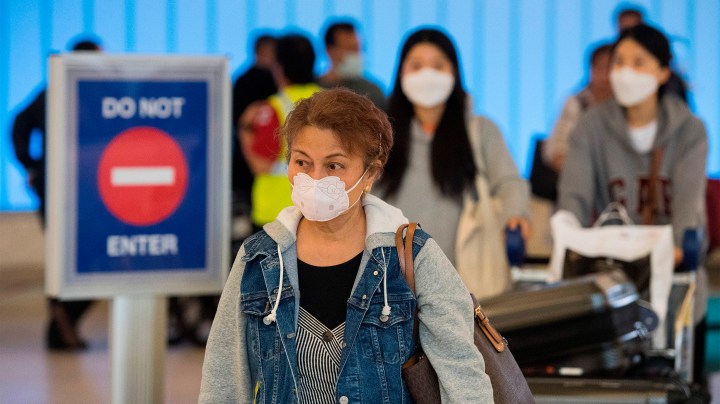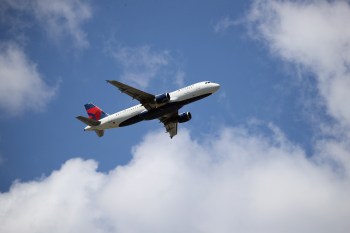
Airlines are bracing for more coronavirus disruption
Airlines are bracing for more coronavirus disruption

Airlines are reporting a sharp drop in demand for flights due to the COVID-19 disease caused by the new coronavirus. U.S. airlines have canceled all flights to China until late April at the earliest, and they’re cutting the numbers of planes making trips to affected areas in Asia and Italy.
“In February 2020, vs. 2019, we saw a 4.3% decrease in the number of commercial flights tracked,” said Ian Petchenik, director of communications at FlightRadar24.
Now the International Air Transport Association, the trade body that speaks for airlines around the world, is warning the cutbacks could have consequences for airlines. IATA said they could be forced to forfeit their rights to land and take off at certain airports by not using their allocated slots.
“Slots are the way that airports allocate the ability to use the airport to different airlines,” Petchenik said. In busy airports, there are only so many openings to land or take off per day. Airlines have to fill at least 80% of their slots in any given season — it’s a use it or lose it situation.
There are about 200 airports around the world that use the slot system. That might not sound like a lot, but they’re some of the busiest, with 43% of all passenger planes departing from them.
The major international airports in China are slot restricted, and U.S. airlines aren’t currently using their slots, which could mean they forfeit them, said Dawna Rhoades, professor of strategy at Embry-Riddle Aeronautical University.
“If the rules are applied and they lost [slots], that’s basically allowing a competitor to move into your market, because competitors can’t come in if they can’t get a landing slot,” she said.
IATA is making the point that if airlines can’t hit that 80% mark, it’s because these are extreme circumstances. It is recommending to the regulators of each country that the slot minimum requirement should be suspended until at least October to get them through the usually busy summer season.
Airlines have had a good decade. Their business has recovered from the tough times of the Great Recession, and they’ve reported strong profits. But they’re still vulnerable to travel disruption, Rhoades said.
“For example, the impact of 9/11 meant airlines in the U.S. lost almost as much money as they had made since the Wright brothers started to fly.”
There are few other precedents for large-scale air travel suspension. The 9/11 airspace closures over the United States lasted three days, but passenger numbers were lower for three years.
The 2010 eruptions of an ash cloud from the Eyjafjallajökull volcano in Iceland caused what’s said to be the biggest shutdown of European airspace since World War II. That lasted just over a week.
Because the COVID-19 outbreak has no end date, it has the potential to be much more disruptive.
There’s a lot happening in the world. Through it all, Marketplace is here for you.
You rely on Marketplace to break down the world’s events and tell you how it affects you in a fact-based, approachable way. We rely on your financial support to keep making that possible.
Your donation today powers the independent journalism that you rely on. For just $5/month, you can help sustain Marketplace so we can keep reporting on the things that matter to you.


















